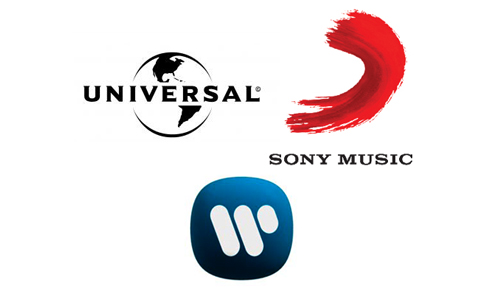Global music industry sales rise after 13 years

MUMBAI: After witnessing major shifts in consumption resulting in mediocre sales, the global music industry has finally reported an increase of 0.3 per cent after a gap of 13 years, according to the annual digital music report by the International Federation of the Phonographic Industry (IFPI).
The industry states that its global sales rose last year for the first time since 1999, raising hopes that a long-sought recovery might have begun. It broke its jinx by posting trade revenue of $16.2 billion to $16.5bn from 2011 to 2012.
IFPI chief executive Frances Moore said, “It is hard to remember a year for the recording industry that has begun with such a palpable buzz in the air. These are hard-won successes for an industry that has innovated, battled and transformed itself over a decade. They show how the music industry has adapted to the internet world, learned how to meet the needs of consumers and monetized the digital marketplace.”
The increase was a relief to the heads of record labels that have witnessed the sales drop from a peak of $28.6bn in 1999, as illegal downloads and the shifting digital age hitting revenues hard.
Inspite of that, it was the digital sector that showed the strongest growth, and compensated for losses in physical revenues for the first time. Digital sales rose by around nine per cent last year to $5.6bn and accounted for 34 per cent of the overall income. Most major digital revenue streams including downloads, subscription and advertising-supported were stated to be on the rise.
National Association of Recording Merchandisers president of music business association Jim Donio said, “It is great news for the music industry, the IFPI has announced that global music revenues increased in 2012 for the first time since 1999. We have now had a full year to measure the impact of services like Spotify, Rdio and more in US, and they are expected to account for more than 10 per cent of total digital revenues worldwide for the first time. We have now recorded a year of sales growth in 2011 and a year of revenue growth in 2012, and with Nielsen predicting that sales will remain more or less stable over the coming years, this is a good indicator of the industry’s global health.”
According to the report, subscription services like Spotify and Deezer grew last year, and are expected to cross the 10 per cent mark as a share of total digital music revenues for the first time. Music subscription services grew by 44 per cent last year and now claim 20mn subscribers around the world.
Download sales increased by 12 per cent to 4.3bn units globally representing around 70 per cent of overall digital music revenues, while digital album sales rose 17 per cent to 207mn.
Sony Music Entertainment president international Edgar Berger said, “At the beginning of the digital revolution it was a common theme to say digital is killing music. Well the reality is digital is saving music. I absolutely believe that this marks the start of a global growth story. The industry has every reason to be optimistic about its future.”
In terms of sales, the most successful album of 2012 was British singer Adele's ‘21’ which sold 8.3mn copies in 2012. Taylor Swift’s ‘Red’ came in second with 5.2mn copies, while boy band One Direction occupied the third and fourth slot for ‘Up All Night’ (4.5mn) and ‘Take Me Home’ (4.4mn) respectively. Lana Del Ray came in fifth for ‘Born To Die’ with 3.4mn copies.
Others on the list included Pink at sixth with ‘The Truth About Love’ (2.6mn), Rod Stewart seventh with his self titled album selling 2.6mn copies, followed by Rihanna at ‘Unapologetic’ (2.3mn), Mumford & Sons at ninth ‘Babel’ (2.3mn) and Maroon 5 rounded off the top 10 with ‘Overexposed’ with 2.2mn copies.
In the digital singles charts, Carly Rae Jepsen claimed the lead with ‘Call Me Maybe’ selling 12.5mn copies, followed by Gotye’s ‘Somebody That I Used to Know’ (11.8mn) and Psy’s ‘Gangnam Style’ (9.7mn). Fun came in fourth with ‘We Are Young’ (9.6mn) followed by Maroon 5’s ‘Payphone’ with 9.1mn copies.
The sixth spot saw Michel Teló with ‘Ai Se Eu Te Pego’ (7.2mn), with Nicki Minaj at seventh for ‘Starships’ (7.2mn) and Maroon 5 once again bagging a spot with ‘One More Night’ (6.9mn). The ninth and tenth positions were occupied by Florida’s ‘Whistle’ with sales of 6.6mn and 6.5mn respectively.
The report also highlights that the recording industry annually invests 26 per cent of its trade revenues (approx $4.5bn) in developing and marketing talent. Music is now also helping power social media platforms. For example, nine in 10 of the most watched videos of all time on YouTube are music videos, led by Psy's Gangnam Style which has been viewed more than 1.2bn times.
The digital music business is globalizing fast, as smartphones and new licensed services span new and emerging markets. In January 2011, the major international download and subscription services were present in 23 markets, and are currently in more than 100.
The report also stated that digital channels account for the majority of record companies' income in an increasing number of markets including India, Norway, Sweden and US. Digital retailers' rapid global expansion is opening up potential for markets like Brazil and India, which are set to become major sources of future industry growth.
While the focus was on growth in the digital sector, physical format sales still accounted for 58 per cent of revenues in 2012 down from 61 per cent in 2011. Declines in the CD market in many countries continued to pose major challenges.
It stated that they will continue their fight against online piracy by urging Internet service providers to block access to illegal sites, demanding search engines to prioritize legal providers and discourage advertisers from featuring commercials on illegal sites.
Apart from that, many non-digital revenue channels also reported an increase. Performance rights income increased in value by an estimated 9.2 per cent in 2012, and now accounts for around six per cent of overall industry revenues, up from three per cent in 2007.














